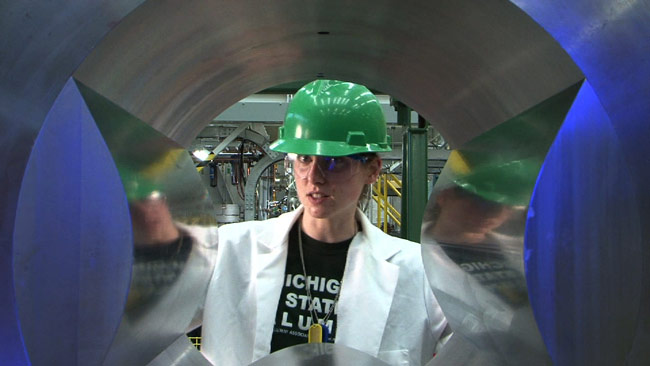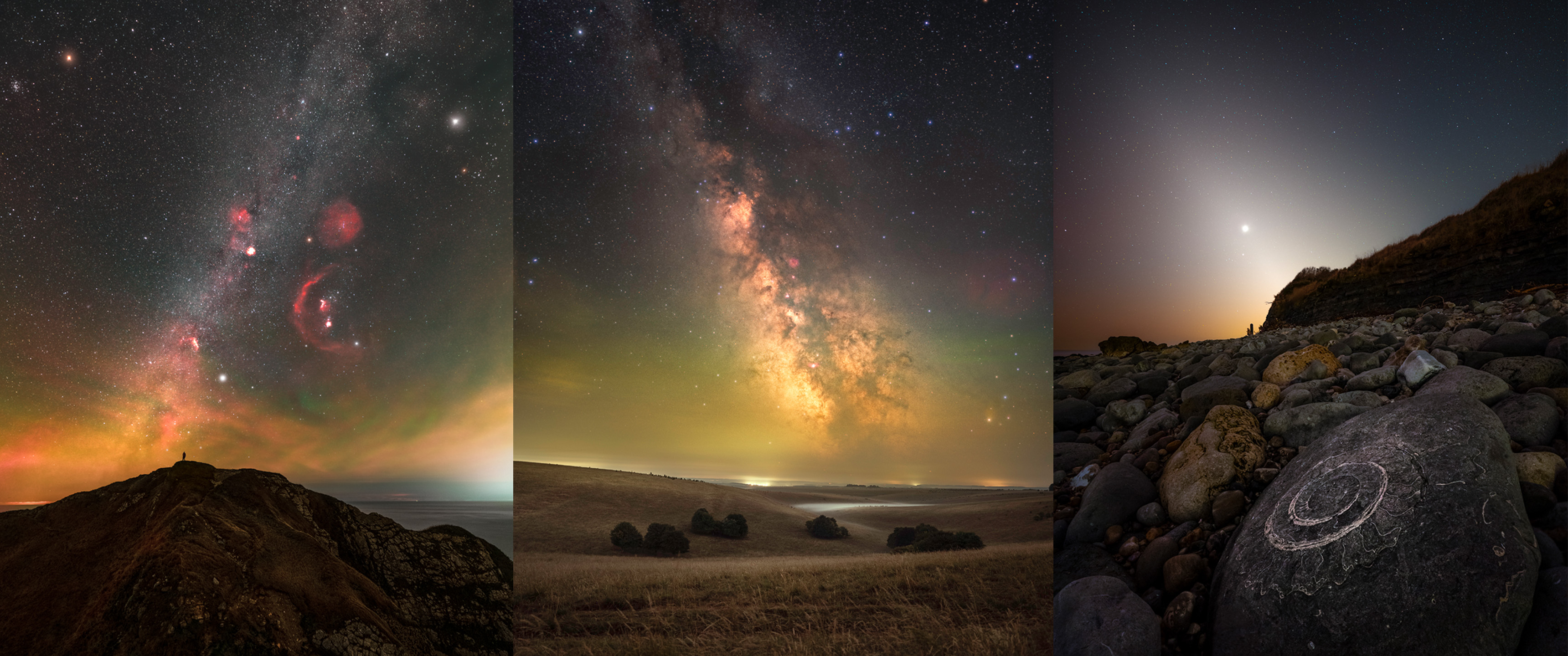New Science Rap by 'AlpineKat' Deals with Nuclear Physics

Editor's Note: ScienceLives is an occasional series that puts scientists under the microscope to find out what makes them tick. The series is a cooperation between the National Science Foundation and LiveScience.
Name: Kate McAlpine Age: 24 Institution: CERN Field of Study: Physics, Writing
Science rapper Kate "AlpineKat" McAlpine has returned to YouTube, this time trying her hand at lyrical rhyming about nuclear physics and explaining the science behind the Facility for Rare Isotope Beams (FRIB) at Michigan State University, her alma mater. McAlpine, 24, achieved Internet stardom a year ago after producing a science rap video about the Large Hadron Collider. The video received international media attention in the time leading up to the first experimental runs of the particle accelerator and was viewed more than 5 million times on YouTube. In her latest rap McAlpine breaks down the complex physics of FRIB, explaining how the formation of new isotopes created from the smashing of atoms may reveal secrets about the formation of stars in the universe and lead to new medical breakthroughs. With more than 20,000 YouTube views in the first month since its release and mentions in The New York Times and Scientific American, McAlpine’s rap once again delivers physics literacy to the masses. McAlpine is a graduate of Michigan State University where she received a bachelor’s degree in professional writing and physics. She lives in London and works both as a contract communicator for CERN and a freelance science journalist. Learn more about McAlpine and her science raps at www.katemcalpine.com and in a video interview at http://www.youtube.com/watch?v=NsOscoAZROw. McAlpine answers the ScienceLives Questions below.
What inspired you to become a science communicator? I was sitting down to breakfast reading an article about black holes in either Scientific American or Discover, and I realized that somebody got paid to write those articles and wouldn’t that be cool to get to study those kinds of things all my life. What is your favorite thing about science? I guess my favorite thing about science is that it’s our best understanding of the universe and it is open to changing when we realize we’ve got something wrong. What was your first scientific experiment as a child? The one that I remember is we made wires out of aluminum foil and scotch tape and we connected them to a light bulb. We put the two ends of the wires into a bowl of water, and for the bowl of freshwater the light didn’t come on, but when we put salt in the water the light bulb came on . . . which shows how electrolytes help water conduct electricity. What is the most surprising thing about science? One of the most surprising things as I was learning about nuclear science was that you can do experiments here on Earth with really tiny nuclei to mimic something that’s going on with some of the most violent phenomena in the universe like a supernova, where particles come flying out of this exploding star and they stick together and form exotic matter and then that matter decays into the matter that we know. Who has had the most influence on your thinking as a communicator? That would have to be my professors in the professional writing program [at Michigan State University]. Without that program I wouldn’t have known that Audacity existed for me to record my own raps. What are the societal benefits of your work? I like to think that the societal benefits of the physics rapping would be that more people understand some complicated research that they might not otherwise try to understand. What music do you play most often in your car? I guess I play a surprising amount of Irish music. And lately I’ve been on a French kick, because I brought home some CDs from Switzerland. My first CD was Eve 6 and I still really love to sing really loud to Eve 6 on a long drive by myself.
Get the world’s most fascinating discoveries delivered straight to your inbox.


